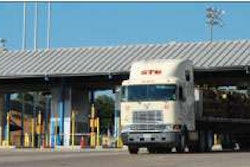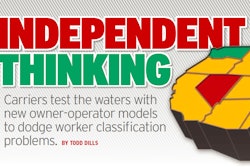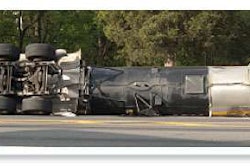The year-end tax dance
 [email protected]
[email protected]“If you’re going to have an expense coming, do it now – don’t wait till after New Year’s,” says Mark Miller, tax manager for ATBS of Denver, the nation’s largest owner-operator financial services provider. Tires, a laptop computer, major maintenance work – any eligible business cost made in 2011 reduces your taxable income dollar for dollar.
How much that reduces your tax bill, though, depends on your income bracket. Considering income tax and self-employment tax together, Miller estimates that owner-operators average a federal tax rate of 25 percent. So every $1,000 in costs could mean $250 off your tax bill, plus whatever it saves on your state income tax.
Other tax points to note:
SELF-EMPLOYMENT TAX. Congress is mulling whether to extend two provisions related to this. One is the reduction of the self-employment tax from 15.3 percent to 13.3 percent that’s in effect for 2011. If your taxable income is $50,000, you’re looking at a possible $1,000 tax hike if this 2 percent break gets taken away.
Congress has yet to decide if it will extend a tax break for health insurance premiums.
HEALTH INSURANCE. “Until now, self-employed truck drivers were able to deduct health insurance from income tax only,” Miller says. This year, that was broadened so that those insurance costs could also be deducted from the 13.3 percent self-employment tax. An owner-operator paying $2,500 in health insurance premiums, for example, gets a tax cut of $330 ($2,500 x .133). Whether this gets extended to 2012 is also up to Congress.


Miller has seen ATBS clients take that big deduction, then turn around and sell the truck in a year or two when it’s still worth a lot. Problem is it’s worth little or nothing in the eyes of Uncle Sam because the owner shifted its depreciation to the fast lane. That means a big tax on capital gains. Those owner-operators are “making a decision for the moment,” Miller says.
Another reason not to depreciate for the moment is that even if you keep the truck, most owner-operators do better with the stability of taking depreciation over the normal three-year cycle. That cycle usually plays out as a partial year for the first calendar year, then two full years, then another partial year.
If you’re unsure about these or other tax matters, consult your tax partner. There’s no need to leave money on the table when an informed decision can keep it in your pocket.









